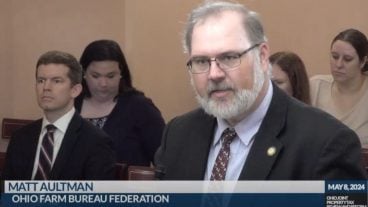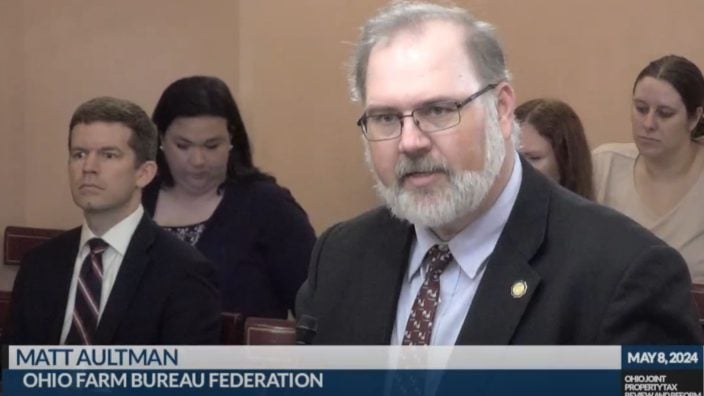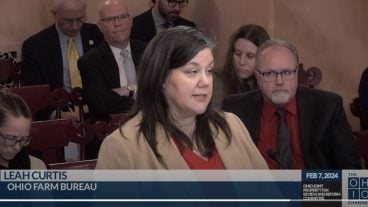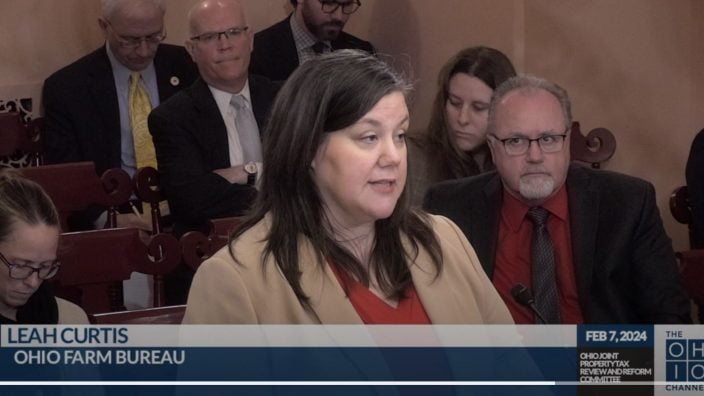Unusually early harvest putting Ohio produce growers in a pickle
An unusually warm February and March has Ohio produce crops maturing ahead of schedule, which impacts u-pick operations.
Read MoreLeaving stepped-up basis untouched in the current package is a positive development, but there are still concerns about other tax provisions in the plan. Farm Bureau members should continue to call on members of Congress to oppose adding any detrimental tax increases for family farms in this or any other legislation.
The American Farm Bureau Federation sent a letter to the U.S. House of Representatives Tuesday stating its opposition to the Build Back Better Act, also known as the reconciliation package.
The letter points to inflation driving up costs across the economy and that greatly increased federal spending is a contributing factor. It identifies federal policy choices that raised energy prices, leading to higher costs for everything from food to used cars and mentioned how this legislation will further exacerbate that pain through a methane tax on oil and gas.
“Our members, like all Americans, are seeing their cost of living continue to rise at a staggering rate. Increasing prices and decreasing availability for many of the things we rely on for our families and our farms are at alarming levels and, as an organization, we struggle to see how the colossal Build Back Better spending bill addresses these issues,” said Ohio Farm Bureau President Bill Patterson. “We are deeply concerned with the extreme ideas in this plan that would make changes in the tax code and impact production practices on farms directly, both of which conflict with Ohio Farm Bureau’s policies set by members at the grassroots level.”
American Farm Bureau President Zippy Duvall also commented on the Build Back Better Act.
“We appreciate House efforts to protect farmers and ranchers by leaving key tax provisions untouched,” Duvall said. “Thousands of small businesses, however, would still be affected by tax increases, forcing them to pass increased costs to families across the nation.”
The legislation also seeks to raise revenue by increasing fines and penalties as much as ten times their current amount for violations of the Occupational Safety and Health Act, Fair Labor
Standards Act and Migrant and Seasonal Agricultural Worker Protection Act. The letter states that the missteps of farmers and ranchers when navigating complex, oftentimes onerous regulations and laws should not serve as a funding mechanism.
“We urge lawmakers to take a different approach to solving these challenges by focusing directly on the causes of the inflation, supply chain and labor woes we are experiencing today,” Patterson said. “We are asking them to find practical solutions, rather than an unorganized plan spending a massive amount of taxpayer dollars only to create additional uncertainty. It’s time to get back to basics.”
Leaving stepped-up basis untouched in the current package is a positive development, but there are still concerns about other tax provisions in the plan. Farm Bureau members should continue to call on members of Congress to oppose adding any detrimental tax increases for family farms in this or any other legislation. Use this link to contact your member of Congress.


An unusually warm February and March has Ohio produce crops maturing ahead of schedule, which impacts u-pick operations.
Read More

During his testimony, Aultman added that ensuring that agricultural property is valued for its agricultural potential and not development is critical to the continued success of Ohio agriculture.
Read More

The emergency fuel waiver to allow the sale of summer gasoline blends containing 15% ethanol will lengthen the period during which Americans can continue buying E15 from June 1 to Sept. 15.
Read More

Ohio Farm Bureau 2024 priority issues focus on business climate, regulatory environment, preserving Ohio’s farming heritage, healthy rural communities, and grassroots advocacy.
Read More

The law requires most businesses to report information about their beneficial owners, and the intent is to try to make it harder to illegally hide assets and commit financial crimes.
Read More

This allows for limited sale and distribution of dicamba OTT products that were already in the possession of growers or in the channels of trade and outside the control of pesticide companies as of Feb. 6, 2024.
Read More

Data shows there are fewer farms in the United States, yet more new, beginning and young farmers.
Read More

How will this impact Ohio farmers and what can be done to allow for use of the products that have already been purchased?
Read More

American Farm Bureau President Zippy Duvall stressed that it is imperative EPA expeditiously provide clarity to farmers and asked the agency to issue an existing stock order.
Read More

farmers are happy with the purpose and philosophy of the CAUV program, but all would prefer some more predictability in their values and more importantly, their tax bill.
Read More